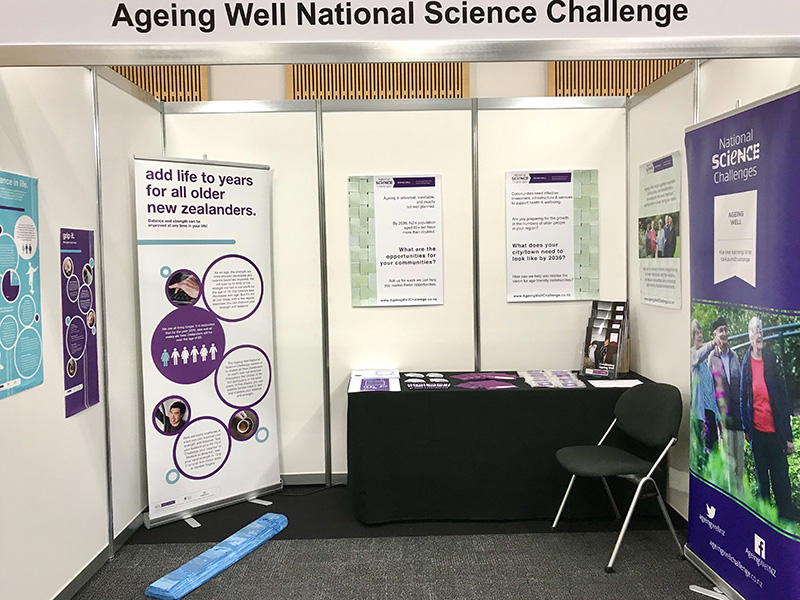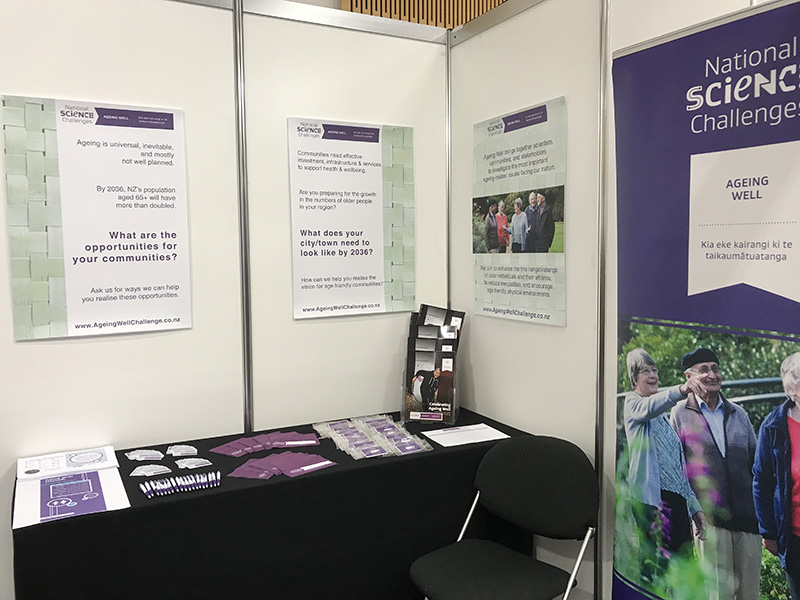
The Ageing Well Directorate was fortunate to spend July 15-17 at the Local Government New Zealand (LGNZ) Conference. Held in Blenheim, the event provided our organisation with an opportunity to reach a segment of our community who may not be aware of the work we do in the areas of science, research, and knowledge exchange.
Director of Ageing Well, Associate Professor Louise Parr-Brownlie said of the conference, “It was great to share our research and work with decision makers from all across Aotearoa New Zealand. We also had a unique opportunity to learn much about the issues facing their decision making.”
One of the challenges facing local governments across the nation is the rising number of older people in their communities. By 2036, the population aged 65 and older will have more than doubled. Ageing Well posed questions such as ‘what are the opportunities for your communities?’ and ‘what does your city/town need to look like by 2036?’ to spark conversation.
We spoke to people representing various sized communities all over the country about how to utilise science and research to enhance their decision making, particularly as they prepare to meet the growing needs of an ageing population. The team were also fortunate to speak with Dr Michelle Dickinson, a notable science communicator, who visited our booth and tried out some of our Well Balanced Exhibit elements.
“By communicating our findings and our knowledge in the areas of science, research, and ageing, it helps local government representatives return to their communities with a better understanding about how to make research-informed improvements in the infrastructure, investment and services they offer,” Associate Professor Parr-Brownlie added.
Co-Director of Ageing Well, Professor David Baxter, encourages anyone from local government seeking further information to reach out to us.
“We are in a unique position to act as knowledge broker in this area. Ageing Well has a wealth of in-house knowledge, and more importantly we have an extensive network of leading researchers and research teams who can help you find solutions to your questions. We are here to help,” Professor Baxter said.
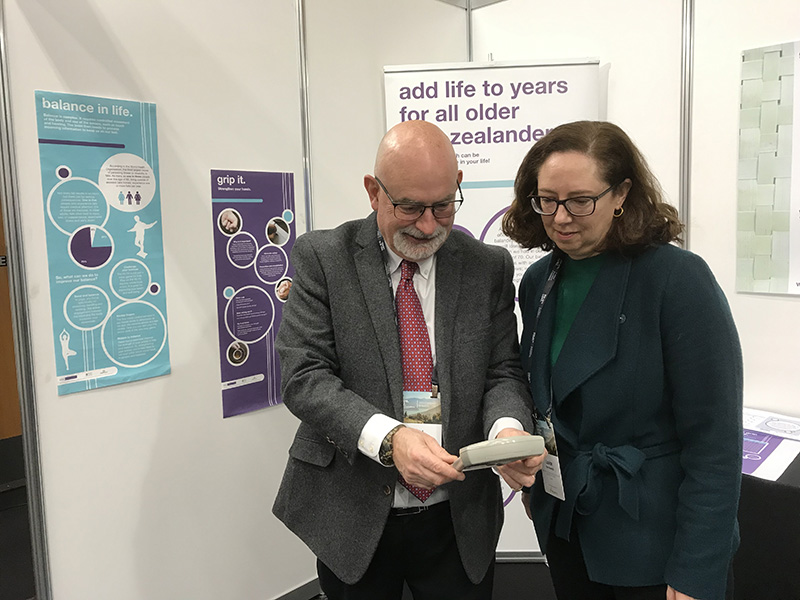
Co-Director of Ageing Well, Professor David Baxter, with Director of Ageing Well, Associate Professor Louise Parr-Brownlie testing out part of our Well Balanced Exhibit. 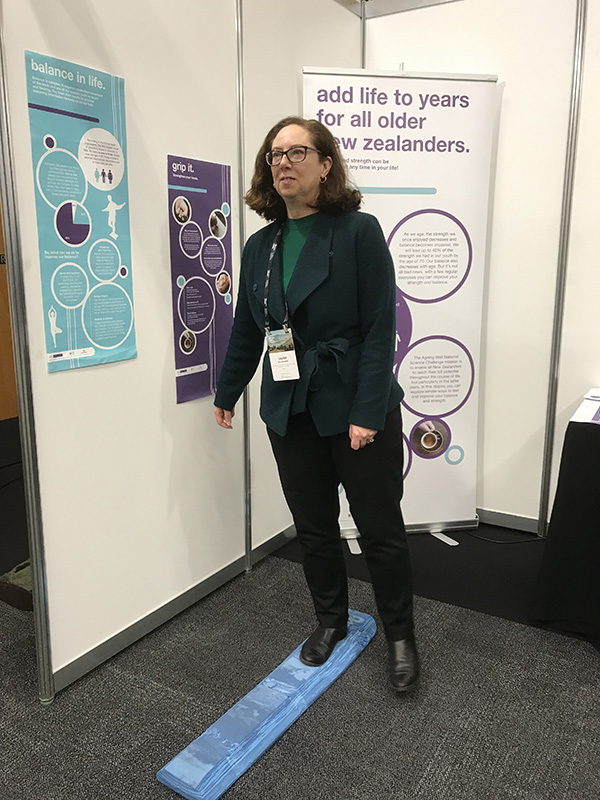
Associate Professor Louise Parr-Brownlie testing out the balance foam element at our booth at the LGNZ Conference. 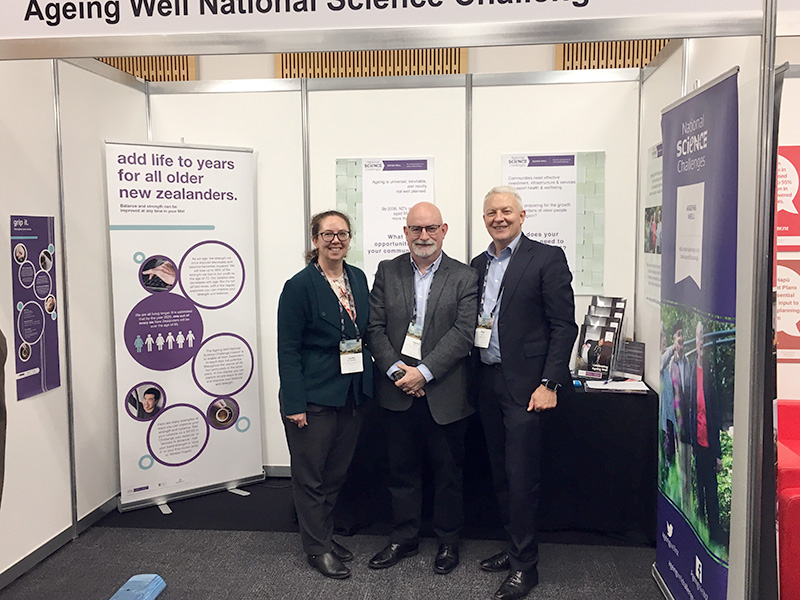
Associate Professor Louise Parr-Brownlie, Professor David Baxter, and Mayor of Auckland, Phil Goff. 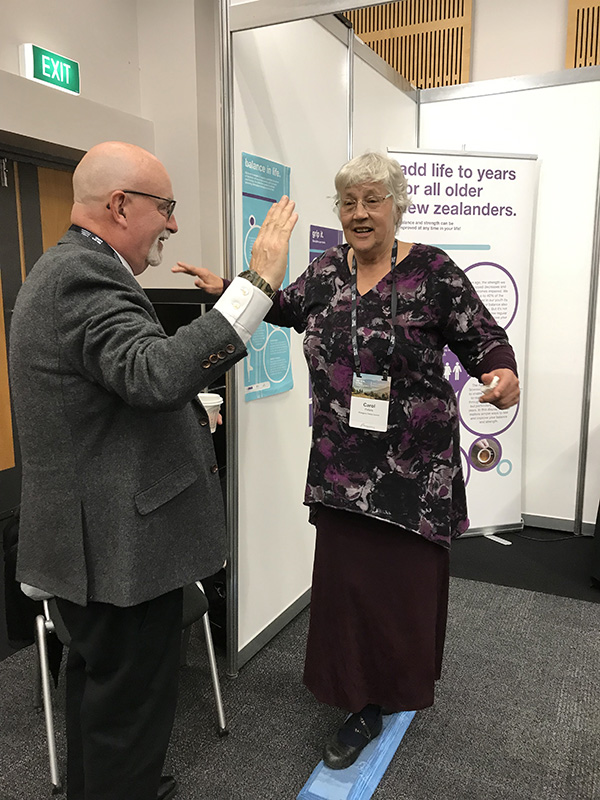
Professor David Baxter helping Cr Carol Peters of Whangerei District Council on the balance foam. 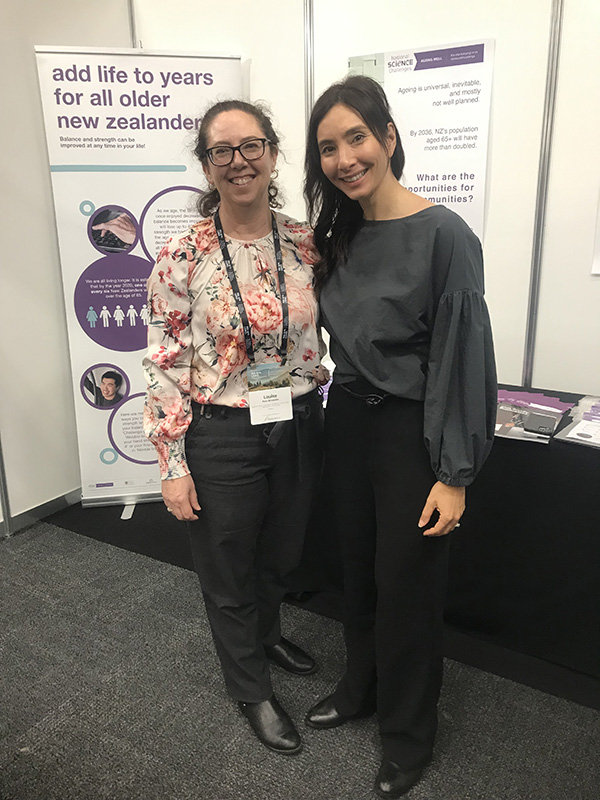
Director of Ageing Well Associate Professor Louise Parr-Brownlie with notable science communicator Dr Michelle Dickinson. 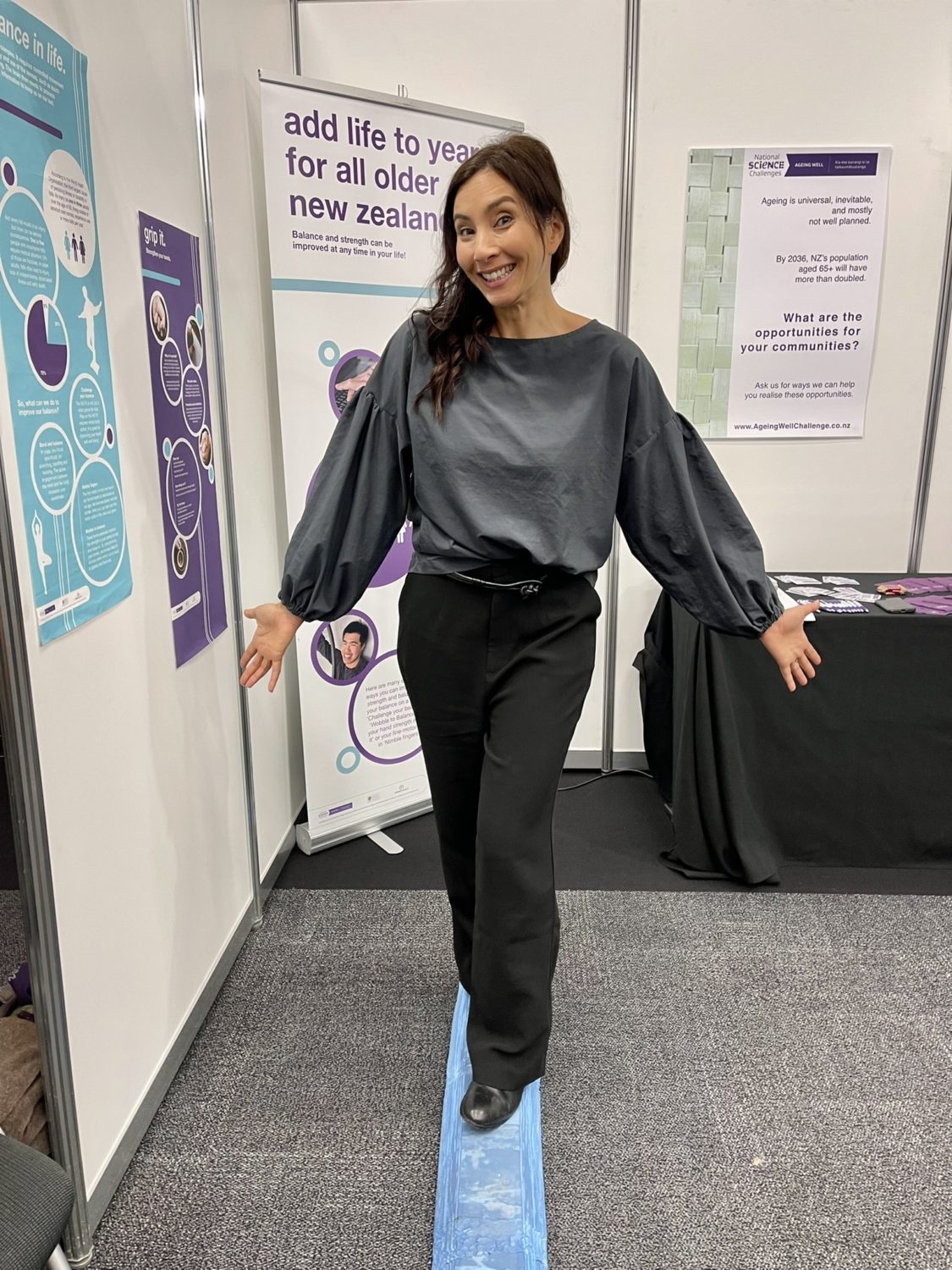
Dr Michelle Dickinson trying our the balance foam at Ageing Well’s booth at the LGNZ conference. 